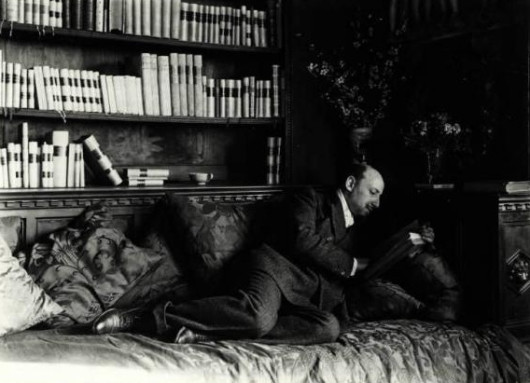After Trump
Editor's note
Editor's note. This is the fourth and last installment in our series on the Trump phenomenon, or “Trumpism,” and what it reveals about the relationship between religion and politics in America today. Special thanks to our previous contributors: Roger Griffin, Landon Schnabel, and Arthur Versluis.

 On Tuesday, November 8th, Americans head to the polls to decide the next President of the United States. The Republican nominee, Donald J. Trump, has gained some late ground, but still looks to be headed for defeat. As of this writing, University of Chicago alum Nate Silver’s FiveThirtyEight gives Trump a 29.2% chance of victory. That the Trump campaign will probably fail is consistent with prediction markets and electoral forecasts ever since he and his Democratic opponent, Hillary Clinton, locked up their respective parties’ nominations. To this writer, however, the question has never been whether Trump wins or loses next week—as important as that may be. The more interesting question is what happens to “Trumpism” after Trump.
On Tuesday, November 8th, Americans head to the polls to decide the next President of the United States. The Republican nominee, Donald J. Trump, has gained some late ground, but still looks to be headed for defeat. As of this writing, University of Chicago alum Nate Silver’s FiveThirtyEight gives Trump a 29.2% chance of victory. That the Trump campaign will probably fail is consistent with prediction markets and electoral forecasts ever since he and his Democratic opponent, Hillary Clinton, locked up their respective parties’ nominations. To this writer, however, the question has never been whether Trump wins or loses next week—as important as that may be. The more interesting question is what happens to “Trumpism” after Trump.The Trump phenomenon
Many commentators have commented on the unconventional attributes of Trump’s candidacy: his rejection of the norms of modern American civic discourse (what he refers to as “political correctness,” or what others might call basic human decency); his rebuke of and by the so-called establishment, including within the GOP itself; his casual disregard if not open contempt for much of the U.S. Constitution, from the First Amendment’s protection of the free exercise of religion to the Eighth Amendment’s prohibition of the use of torture to the very notion of a peaceful transition of power; his courting of the alt-right and other “deplorables,” people famously described by Clinton as “racist, sexist, homophobic, xenophobic, Islamophobic—you name it”; his inciting of violence at his rallies.
These and other characteristics have caused some to label Trump a “fascist,” a charge which the leading experts on fascism, like historian Roger Griffin, have largely refuted. Griffin argues that for Trump to be a fascist he would “have to set about seizing power democratically so as to be able to dismantle or pervert the institutions of liberal democracy entirely.” He goes on: “Trump, whatever his faults, has given no sign that he intends the destruction of the U.S. constitutional system and its replacement by a totalitarian ‘new order’ with himself as its charismatic leader for (in his case a short) perpetuity.” But even if Trump does not qualify as a fascist, per se, perhaps fascism can still teach us something about the Trump phenomenon.
Political religions
Eric Voegelin was one of the first to observe that both Italian Fascism and German National Socialism were more than merely political parties or regimes; rather, they exhibited certain traits of religious movements. Religions, according to Voegelin, established an onto-theological hierarchy whereby all of the objects of experience were subordinated to some realissimum or ultimate reality. For traditional, “other-worldly” religions—such as the Western monotheisms—that realissimum was a transcendent God. Fascism decapitated God. Taking God’s place atop the hierarchy of beings was the body politic itself, a corporate entity defined either in nationalist (Italian Fascism) or in racialist (National Socialism) terms. Fascism, in its various forms, could therefore be considered an “inner-worldly” religion, a sacralization of politics.
Don the Baptist?
So Trump’s presidential hopes should come to an end in a few days. It would be a mistake, however, to assume that Trumpism dies with them. GOP leaders will no doubt look for ways to distance themselves from Trump while at the same time holding on to his voters, without whom their party cannot survive. Republicans may criticize Trump as an imperfect messenger and yet embrace his nativist message, rebuilding and rebranding themselves as a party in Trump’s image, if somewhat polished and softened. Otherwise they risk having their base fracture, with Trumpism becoming a competing, independent movement outside the existing two-party system.
Resources
- Bokhari, Allum, and Milo Yiannopoulos. “An Establishment Conservative’s Guide to the Alt-Right.” Breitbart. March 29, 2016.
- Decius Mus, Publius. “Toward a Sensible, Coherent Trumpism.” The Unz Review. March 10, 2016.
- —. “The Flight 93 Election.” Claremont Review of Books. September 5, 2016.
- Griffin, Roger. “The Last Trump?” Sightings. September 8, 2016.
- Hughes-Hallett, Lucy. Gabriele D'Annunzio: Poet, Seducer, and Preacher of War. Alfred A. Knopf, 2014.
- Schnabel, Landon. “Is Trump an Outsider Candidate?” Sightings. September 29, 2016.
- Versluis, Arthur. “Redefining the American Civil Religion.” Sightings. October 6, 2016.
- Voegelin, Eric. The Collected Works of Eric Voegelin, Vol. 5: Modernity Without Restraint. Ed. Manfred Henningsen. University of Missouri Press, 1999.
Image: Gabriele D'Annunzio | Photo credit: Mario Nunes Vais (public domain)
 Author, Brett Colasacco, is Managing Editor of Sightings. Author, Brett Colasacco, is Managing Editor of Sightings. |
Sightings is edited by Brett Colasacco, a PhD candidate in Religion, Literature, and Visual Culture at the University of Chicago Divinity School. Click here to subscribe to Sightings as a twice-weekly email. You can also follow us on Twitter.

